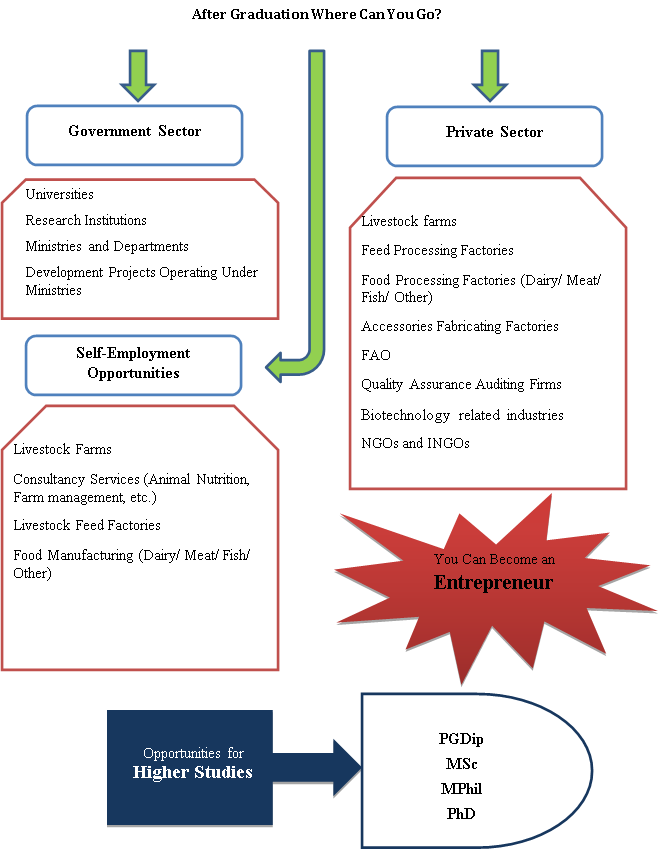Programme Learning Outcomes
Programme Learning Outcomes-Animal Science Degree Programme
On the successful completion of the BASc degree graduates will be able to;
1. Subject/ Theoretical knowledge
• Employ solid theoretical knowledge on farm animal and aquatic resources management and value addition to farm animal and aquatic resources.
• Propose constructive solutions to problems associated with livestock, poultry and food sectors through logical, analytical and critical thinking.
2. Practical knowledge and Application
• Perform effectively as an entry-level professional using sound practical skills required in livestock & poultry farms and food & feed processing industries.
• Propose constructive solutions to problems associated with livestock, poultry and food sectors through logical, analytical and critical thinking.
• Formulate plans and implement better management practices and ensure sustainability and safety in livestock, poultry and food sectors.
• Evaluate the quality of animal- and plant-based food products.
• Assess the quality assurance systems of a given animal- and plant-based food processing factory.
3. Communication
• Communicate information, ideas, issues, and solutions effectively and confidently in oral, written and electronic formats to a wide range of audiences in mother tongue and English.
• Demonstrate awareness on the current developments in livestock, poultry and food sectors in oral and written formats.
4. Teamwork and Leadership
• Perform effectively in a given working environment and in community with minimum conflicts.
• Demonstrate professionalism, leadership and interpersonal skills in a given working environment and in community.
5. Creativity and Problem Solving
• Propose constructive solutions to problems associated with livestock, poultry and food sectors through logical, analytical and critical thinking.
6. Managerial and Entrepreneurship
• Take initiative and ability to inculcate entrepreneurship.
7. Information Usage & Management
• Accomplish data processing & management needs for effective functioning of the working environment using sound numerical & ICT skills.
8. Networking & Social Skills
• Perform effectively in a given working environment and in community with minimum conflicts.
• Demonstrate professionalism, leadership and interpersonal skills in a given working environment and in community.
9. Adaptability & Flexibility
• Adapt to changing working environments.
10. Attitudes, Values & Professionalism
• Perform effectively in a given working environment and in community with minimum conflicts.
• Demonstrate professionalism, leadership and interpersonal skills in a given working environment and in community.
11. Vision for Life
• Identify appropriate pathways for future career and establish personal and professional goals through appropriate strategies.
12. Updating Self/ Lifelong Learning
• Acquire new competencies through engage in lifelong learning and undertake major responsibilities with confidence to progress in a chosen career.
• Take part in and promote social responsibilities.




